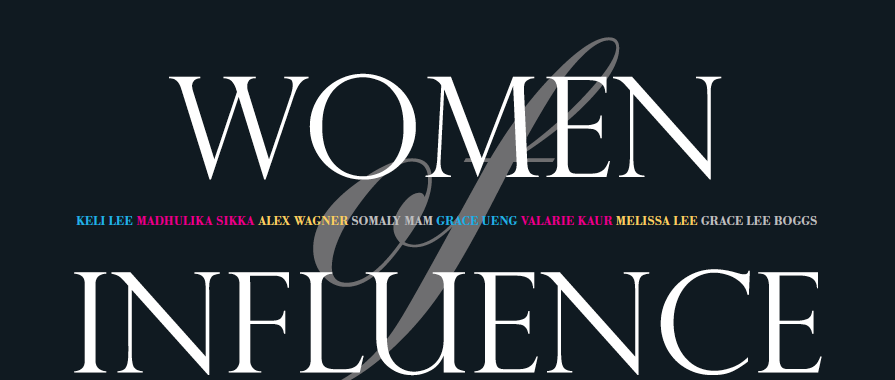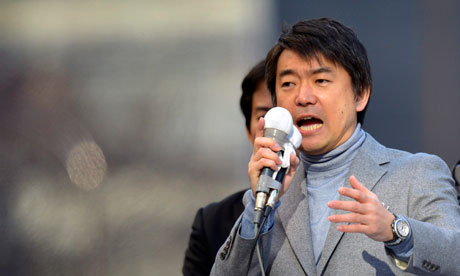Article: WOMEN OF INFLUENCE
ISSUE: FALL 2013
Influence comes in many forms, from high-profile advocates who are shaping ideas on an international stage to local heroes who are breaking barriers and defying expectations in their own communities. In our inaugural series celebrating influential Asian American women, Audrey Magazine highlights eight newsmakers, activists, leaders and trailblazers who encourage us to pursue our dreams, explore the unknown, and stand up for those without a voice.
CLICK HERE FOR MORE ASIAN AMERICAN INFLUENTIAL WOMEN!
by Ada Tseng
PHOTO COURTESY OF NPR/DOBY PHOTOGRAPHY.
MADHULIKA SIKKA
Executive Editor for NPR News
Every week, 26 million people tune in to National Public Radio programs and NPR Newscasts – more than the total circulation of the top national newspapers – and since January 2013, Madhulika Sikka, an Indian American woman born in England, has been responsible for setting the agenda for the entire news division.
On any given morning, her team could be placing equal importance on the Detroit bankruptcy, President Obama’s economic tour, the golden age of television, new methods to engage their audience in an honest discussion about race, and Prince George Alexander Louis of Cambridge, a.k.a. the royal baby.
“I’m a big believer in satisfying your wonk and your whimsy,” says Sikka, who previously executive produced NPR’s newsmagazine Morning Edition. “It might have something to do with my own personal news ADD, but I just think that we’re curious people, and we’re curious about lots of things. It is no accident that we have a program called All Things Considered.”
Sikka is extremely pleased with NPR’s global health and science coverage that other broadcasters don’t cover as thoroughly – exploring tuberculosis outbreaks around the world and incidents of polio coming back – but she also wants to make sure her listeners are prepared for lighter water-cooler conversations around the office.
“We have two extraordinary female correspondents that covered Syria as well as anybody, and I’m proud of that coverage because it’s vital to our mission,” says Sikka. “But I’m also proud of the enormously great coverage we’ve done on cultural issues, like this summer’s series on the different kinds of media that kids are exposed to.”
But being multifaceted in content is not enough: it’s also very important to Sikka that NPR News continually evolves with technology and that there’s a fluid relationship between all platforms, whether it’s radio, digital tech, multimedia or social media. “None of us could have imagined the incredible range of ways we get to tell our stories now,” she says. “It’s really incredible the things we can do, the tools that we accrue, and how technology allows us to be in places that might have been completely out of reach before.”
Next year, Sikka will be publishing her first book, The Breast Cancer Alphabet, a collection of personal essays she wrote when she was diagnosed with breast cancer in 2010 and went through treatment in 2011. “There’s kind of a mythology around breast cancer that’s very pink and fluffy and positive,” she says. “And that is not the experience the whole time, so I felt like I gave myself permission to not feel that way. It ended up being an alphabet – starting at A for Anxiety, H for Hair, M for Mastectomy, ending at Z – and I hope it will be of use to other people going through it.”
Whether it’s providing “4 Tips To Help A Foodie Get Through Chemo,” penning a Daily Beast article about her late mother’s bravery (“As I wrapped her body in a red sari for her funeral, it dawned on me that her refusal to dress in Western clothing was more pioneering than anything I had ever done”), or slipping behind the scenes to study how best to engage her growing NPR audience (an intellectually curious group that hungers for, above all, interesting stories), Sikka wants us to open up our minds in terms of how we view the world.
“I think our primary goal is to provide information so they can be informed about the decisions and choices they make,” says Sikka. “If [our listeners] learn one thing that they didn’t know before, then we’re doing pretty well. An informed democracy is a more healthy democracy.”
WEB EXCLUSIVES:
On why she’s wanted to be a journalist since she was 16
I wanted to be able to shed light on things that were happening around the country and around the globe. I grew up in England watching the BBC and being impressed at their ability to be everywhere, to open a window to places and issues that I might not have otherwise thought about. And I thought that was a wonderful thing to do.
On the difference between working on Morning Edition vs. being Executive Editor of NPR News
When you produce a daily news show, it’s very focused. You’re responsible for filling two hours every day without a break, so producing Morning Edition helped me hone the skill of working fast and being decisive — which is what a deadline does to you.
[Being Executive Editor of] NPR News is different. I’ve been a news person my whole life — that is what runs through my blood system, and that’s hard to eliminate — but now, to have a hand in discussing broader coverage, and even coverage online, is a really exciting new prospect for me. How can we move, how can we react, what’s appropriate for each particular outlet? For example, when the President came out unannounced [to speak about the Zimmerman verdict and reactions in the African American community], I realized it was a pretty extraordinary thing to hear a President speak that way, so we were able to get together very quickly and talk about what we’d do in next hour, the next morning, the morning after that, what we’d do online, etc. And that’s really what you come in for.
On her first book, The Breast Cancer Alphabet
I never thought I’d write a book, and I certainly didn’t think this was the book I’d write if I was going to write a book. When I was getting treatment, I was just writing a little bit for myself, because I had things I needed to get out. A lot of people encouraged me to write and then talking to people helped me hone a concept. My agents and publishers are excited about it, because they think it’s a different kind of cancer book.
Who influences you?
I wrote about my mother and her death in an article that was published in the Daily Beast. It took me a while to come to the realization that she was a very brave woman. She got married when she was not quite 18, left her family behind and moved to England in 1960s.
I think that there’s a different measure for our modern interpretation of a brave woman, but it’s kind of extraordinary to think about that generation of women in the Indian diaspora and the idea that you’d have three kids with a stranger in an arranged marriage and raise them by yourself with no family around in early 1960’s England, which wasn’t the most hospitable place in the world for people of color, all without the benefits that we have today. I can’t go a week without calling my family in England, but Skype wasn’t even around when she was alive.
So are there amazing pioneering women in journalism? Yes, of course, and also in other spheres of life, but when I actually took the time to think about what my mom did, it’s pretty remarkable.

BUY THE FALL 2013 ISSUE FEATURING OUR WOMEN OF INFLUENCE HERE.












